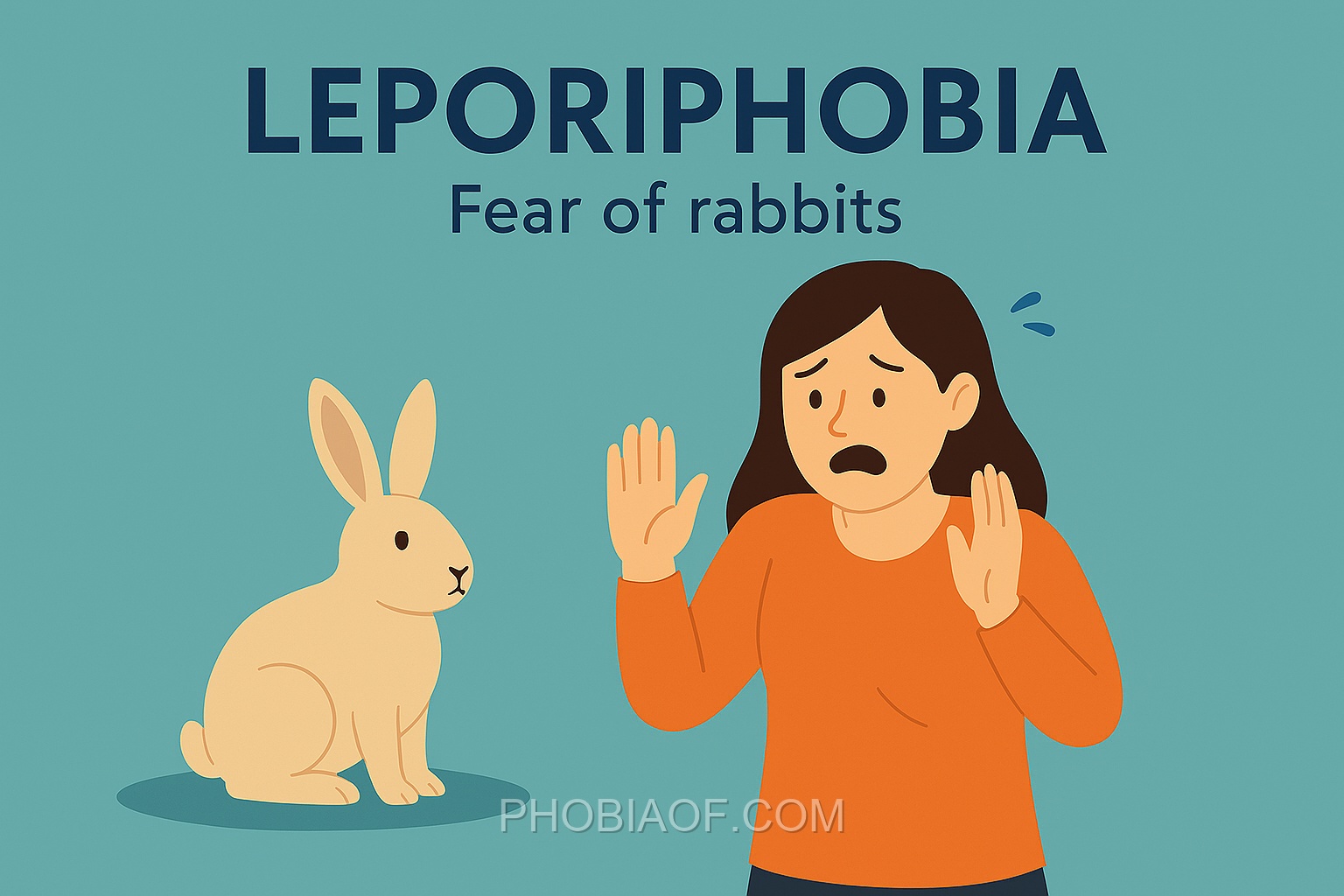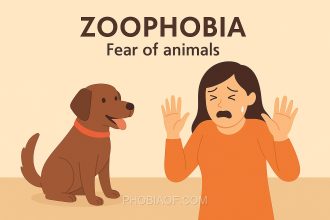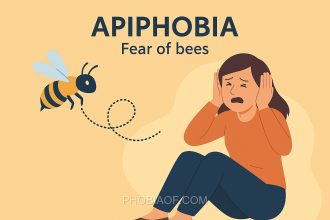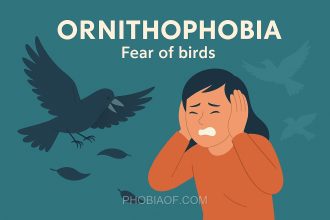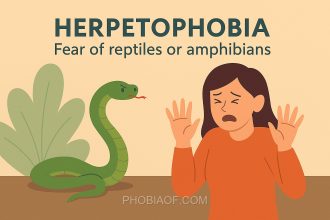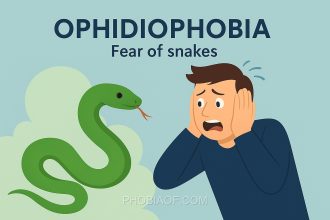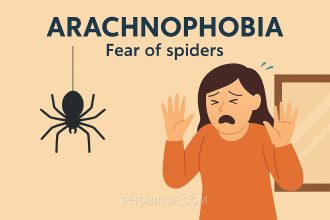Have you ever imagined feeling a rush of fear at the sight of a cute, fluffy rabbit? For some people, this is a reality known as Leporiphobia.
Leporiphobia, derived from the Latin word “lepus,” meaning “hare,” and the Greek word “phobos,” meaning “fear,” is the intense fear of rabbits. Though it might sound unusual to those who find rabbits charming and harmless, this phobia is very real and can cause significant distress.
Individuals with Leporiphobia might experience anxiety or panic attacks at the mere thought of encountering a rabbit. This fear can manifest in various ways and impact daily life, potentially leading to avoidance of parks, pet stores, or even certain media where rabbits are depicted.
- Physical Symptoms: Sweating, trembling, rapid heartbeat, or feeling faint when near rabbits.
- Emotional Symptoms: Overwhelming anxiety, a strong urge to escape situations where rabbits might be present.
- Behavioral Symptoms: Avoiding areas known for rabbit populations or refusing to watch movies featuring rabbits.
Understanding and compassion are key when discussing phobias like Leporiphobia. It’s important to remember that fears, no matter how irrational they may seem, are valid and can be deeply rooted in personal experiences or cultural influences.
Causes of Leporiphobia
Leporiphobia, the fear of rabbits, may seem unusual to some, but like any phobia, it can significantly impact a person’s life. Understanding its causes can help demystify the fear and offer insights into potential treatments. Here are some common reasons why someone might develop this phobia:
- Genetic Predisposition:
Some individuals may have a genetic predisposition to anxiety disorders, which can increase the likelihood of developing specific phobias like leporiphobia. Research suggests that phobias can run in families, indicating a hereditary component.
- Traumatic Experiences:
A traumatic encounter with a rabbit, especially during childhood, can lead to a lifelong fear. This could be something as simple as being startled by a rabbit jumping unexpectedly or being scratched or bitten.
- Learned Behavior:
Children often model the behavior of adults around them. If a parent or close family member exhibits a fear of rabbits, a child might learn to fear them as well. This learned behavior can solidify over time into a genuine phobia.
- Psychological Factors:
Individuals with a predisposition to anxiety or those who are generally more prone to fears might develop a phobia of rabbits due to their perception of unpredictability or their association with certain cultural myths or stories.
- Environmental Factors:
In some cases, media portrayals or cultural stories depicting rabbits as dangerous or mischievous could influence someone to develop a phobia. Environmental influences can often shape perceptions and fears in subtle yet profound ways.
Interestingly, some theories suggest that phobias might have evolved as a survival mechanism. While rabbits are generally harmless, developing a fear of small animals could have helped ancient humans avoid potentially dangerous situations. Although this theory is more speculative, it highlights the complex interplay between evolution and modern-day anxieties.
While the exact cause of leporiphobia can vary, a combination of these factors often contributes to its development. Understanding these causes can be the first step in seeking effective treatment and overcoming the fear.
Symptoms of Leporiphobia
Leporiphobia is characterized by an intense fear or anxiety surrounding rabbits. This phobia can manifest in various ways, both physically and emotionally, and it can significantly impact an individual’s daily life. Recognizing these symptoms is the first step towards understanding and addressing the phobia.
- Intense Fear or Anxiety: Individuals experience an overwhelming sense of fear when thinking about or encountering rabbits.
- Panic Attacks: Sudden episodes of intense fear that may include shortness of breath, chest pain, or a feeling of losing control.
- Sweating: Excessive perspiration, especially when faced with the possibility of encountering rabbits.
- Rapid Heartbeat: Heart palpitations or an accelerated heartbeat when confronted with the phobic trigger.
- Trembling or Shaking: Physical tremors or jitters in response to anxiety-inducing situations.
- Avoidance of Triggers: Going out of one’s way to avoid places or situations where rabbits might be present.
- Overwhelming Dread: A persistent feeling of dread or unease about encountering rabbits, even when they are not present.
- Distress in Anticipation: Anxiety or distress when anticipating situations where rabbits may appear, such as visiting a petting zoo or watching certain movies.
When leporiphobia is severe, these symptoms can interfere with daily life, making it difficult for individuals to engage in activities they once enjoyed or perform routine tasks without experiencing significant distress.
Treatment for Fear of Rabbits
Leporiphobia, or the fear of rabbits, can be a challenging phobia to manage, but it’s important to know that with time and the right approach, it can be treated and managed effectively. This guide will outline various treatment options and coping strategies that can help you overcome this fear.
Proven Therapies
There are several therapies that have been proven effective in treating specific phobias like leporiphobia:
- Exposure Therapy: This is a gradual process where you are slowly exposed to rabbits in a controlled setting, allowing you to face your fear and reduce anxiety over time.
- Cognitive-Behavioral Therapy (CBT): CBT helps you change the negative thought patterns associated with your fear. By reframing these thoughts, you can reduce the anxiety they cause.
- Counseling: Speaking with a mental health professional can provide support and guidance as you work through your fear, helping you to understand and confront the root causes.
Self-Help Coping Techniques
In addition to professional therapy, there are self-help techniques you can use to complement your treatment:
- Relaxation Exercises: Techniques such as deep breathing, progressive muscle relaxation, and visualization can help calm your mind and reduce anxiety.
- Meditation: Regular meditation practice can improve overall mental health and help you manage stress related to your phobia.
- Support Groups: Joining a support group can provide a sense of community and understanding as you connect with others facing similar fears.
Medication
In severe cases, medication such as anti-anxiety medications might be prescribed to help manage symptoms. However, it’s generally recommended to focus on therapy and coping skills as the primary treatment methods.
Remember, overcoming a phobia is a journey, and it’s perfectly okay to seek professional help if your fear of rabbits is interfering with your daily life. With the right support and strategies, you can successfully manage and even conquer leporiphobia.
Conclusion
Understanding the causes and symptoms of leporiphobia, or the fear of rabbits, can be an empowering step for anyone looking to address this uncommon but distressing phobia. By recognizing the roots of your anxiety and the ways it manifests, you can begin to take control of your fear. This knowledge is the first step toward managing or even overcoming your phobia.
It is important to remember that you are not alone. Many people successfully manage or overcome their phobias with time, patience, and the right support. If you find that your fear of rabbits is impacting your daily life, consider seeking help from a mental health professional. Therapy, such as cognitive-behavioral therapy, can provide you with strategies to confront and diminish your fears. Speaking to a doctor can also be a valuable step in exploring the best options for your individual situation.
Take heart in knowing that with determination and the right resources, progress is possible. Embrace the journey toward overcoming your leporiphobia, and know that each small step forward is a victory. You have the strength to face your fears, and with support, you can lead a more comfortable and fearless life.
